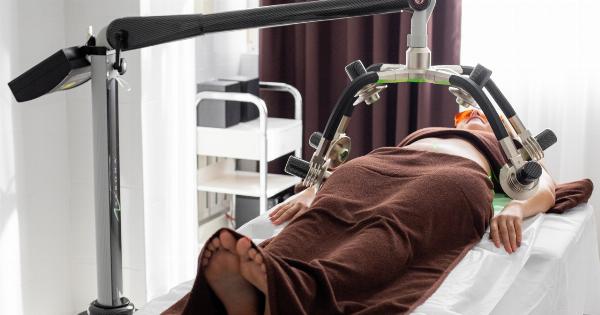With the rise of non-surgical cosmetic treatments, fat zapping injections have gained popularity as a quick and easy solution for those looking to get rid of stubborn fat.
But what exactly are these injections, and do they really work? In this article, we will uncover the truth about fat zapping injections and whether they are worth considering.
What are Fat Zapping Injections?
Fat zapping injections, also known as lipolytic injections or lipolysis, are injectable treatments that claim to dissolve and eliminate fat cells in specific areas of the body.
The most commonly targeted areas include the abdomen, thighs, hips, and chin. These injections generally contain a substance called deoxycholic acid, which is a naturally occurring molecule in the body that aids in the breakdown and absorption of dietary fat.
How do Fat Zapping Injections Work?
When fat zapping injections are administered, the deoxycholic acid breaks down the cell membranes of fat cells, causing them to rupture.
Once the fat cells are disrupted, the body’s lymphatic system is responsible for flushing out the released fat and eliminating it naturally. This process is said to result in a noticeable reduction in fat deposits in the treated area.
The Effectiveness of Fat Zapping Injections
While fat zapping injections may sound like a dream solution, it is important to understand their actual effectiveness and limitations. Clinical studies have shown that these injections can indeed lead to a reduction in fat volume in the treated area.
However, the degree of fat reduction varies among individuals, and multiple treatments are often required to achieve noticeable results.
Considerations and Side Effects
Before considering fat zapping injections, it is crucial to consult with a qualified healthcare professional or a licensed cosmetic practitioner.
They will assess your individual circumstances and determine whether you are a suitable candidate for the treatment. It is essential to disclose any pre-existing medical conditions, allergies, or medications you are taking to ensure your safety during the procedure.
Common side effects associated with fat zapping injections include swelling, bruising, redness, and tenderness at the injection site. These side effects are generally temporary and subside within a few days to a week.
However, more serious complications such as infection, nerve damage, or uneven fat removal can occur if the injections are not administered by a trained professional.
Are Fat Zapping Injections a Substitute for a Healthy Lifestyle?
While fat zapping injections may provide visible fat reduction, they are not intended to be a substitute for a healthy lifestyle. These injections should complement a well-balanced diet and regular exercise routine, rather than replace them.
Maintaining a healthy weight through proper nutrition and physical activity is key to long-term fat reduction and overall well-being.
Alternative Fat Reduction Methods
For those who are not suitable candidates for fat zapping injections or prefer alternative methods, there are several other options available. These include:.
-
Cryolipolysis
Cryolipolysis, commonly known as “fat freezing,” uses controlled cooling to target and destroy fat cells. The procedure is non-invasive and requires no needles or anesthesia.
The treated fat cells are gradually eliminated by the body’s natural processes, resulting in a more sculpted appearance.
-
Ultrasound Fat Reduction
Ultrasound fat reduction treatments use focused ultrasound waves to disrupt and destroy fat cells. The procedure is typically painless and does not require any downtime.
Like other fat reduction methods, multiple sessions may be necessary to achieve optimal results.
-
Laser Liposuction
Laser liposuction involves the use of laser energy to liquefy fat cells, making them easier to remove. This method is more invasive than non-surgical alternatives but can provide immediate and significant fat reduction.
However, it is important to note that laser liposuction still involves surgical intervention and comes with risks associated with any surgical procedure.
Conclusion
Fat zapping injections can be an effective option for reducing localized fat deposits when administered by a trained professional.
However, it is crucial to have realistic expectations and understand that these injections are not a magical solution for weight loss or a substitute for a healthy lifestyle. Consulting with a medical professional is essential to determine the suitability of this procedure based on individual circumstances.






























